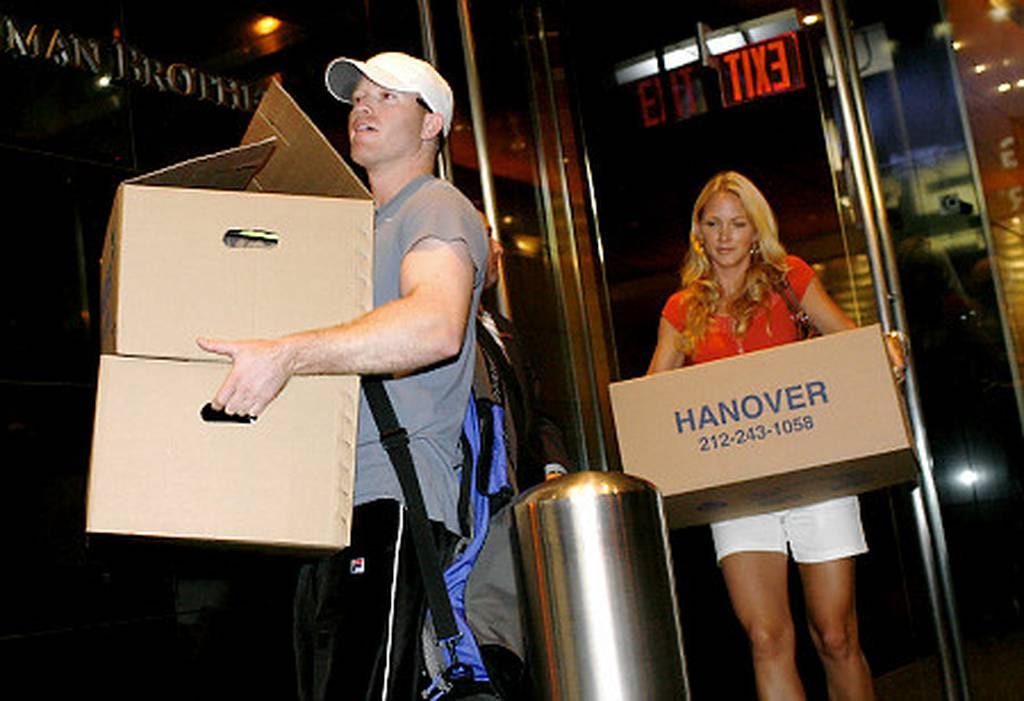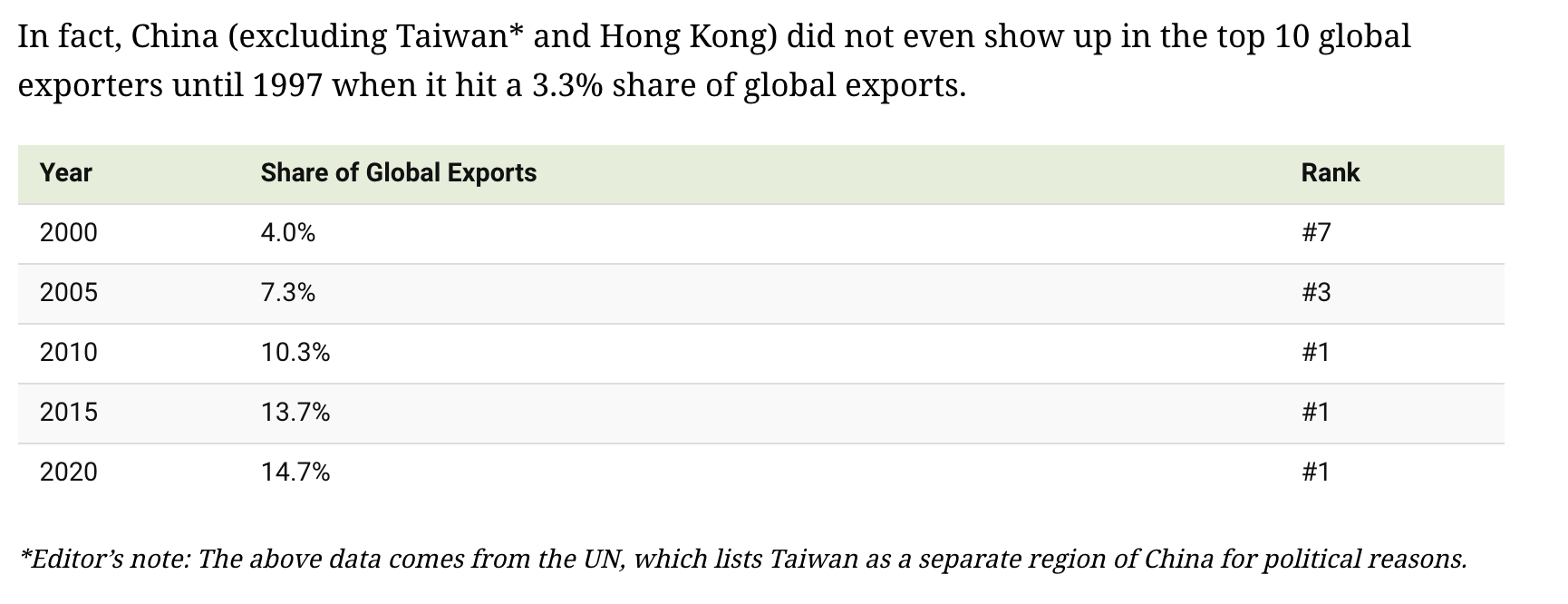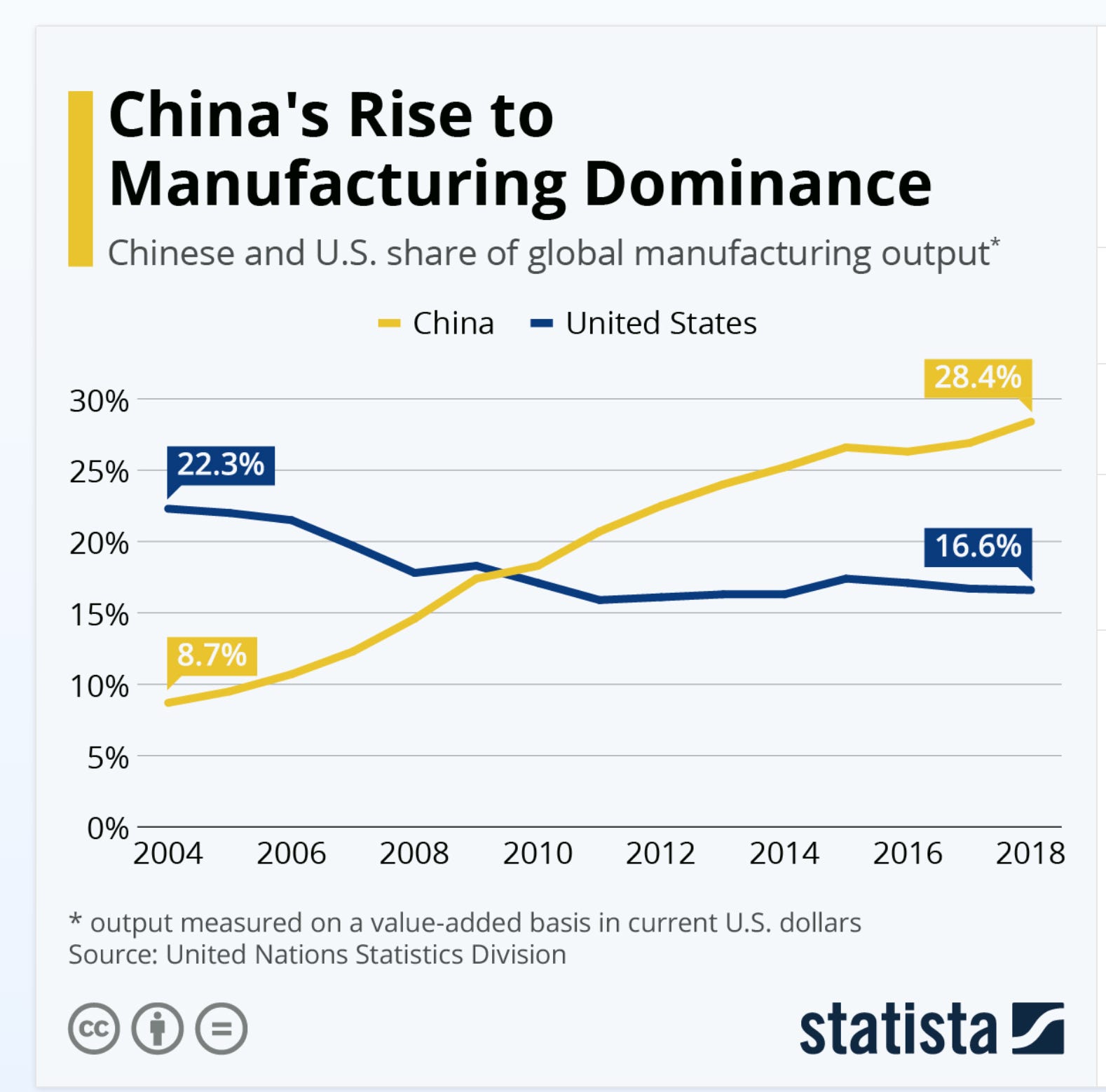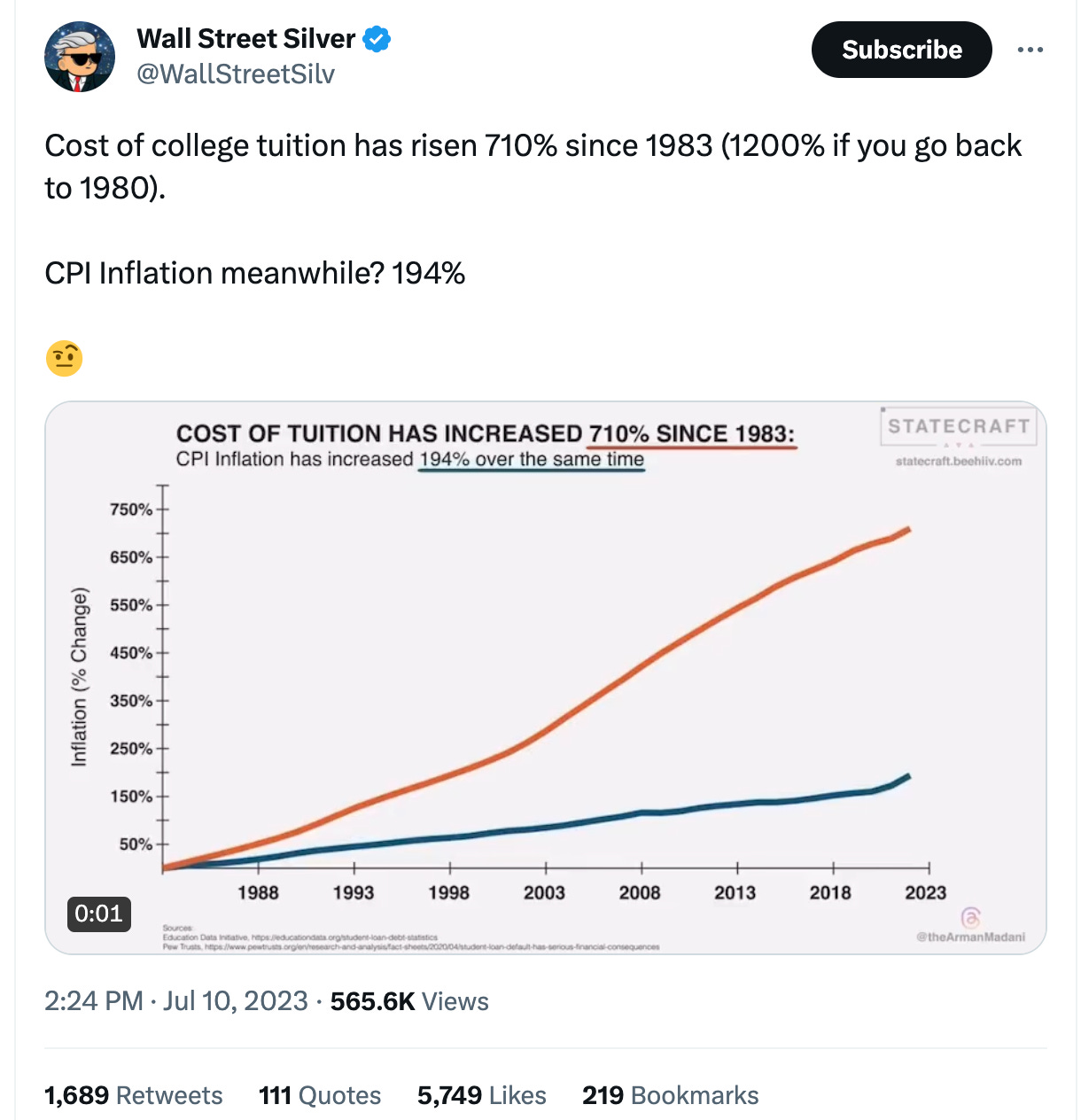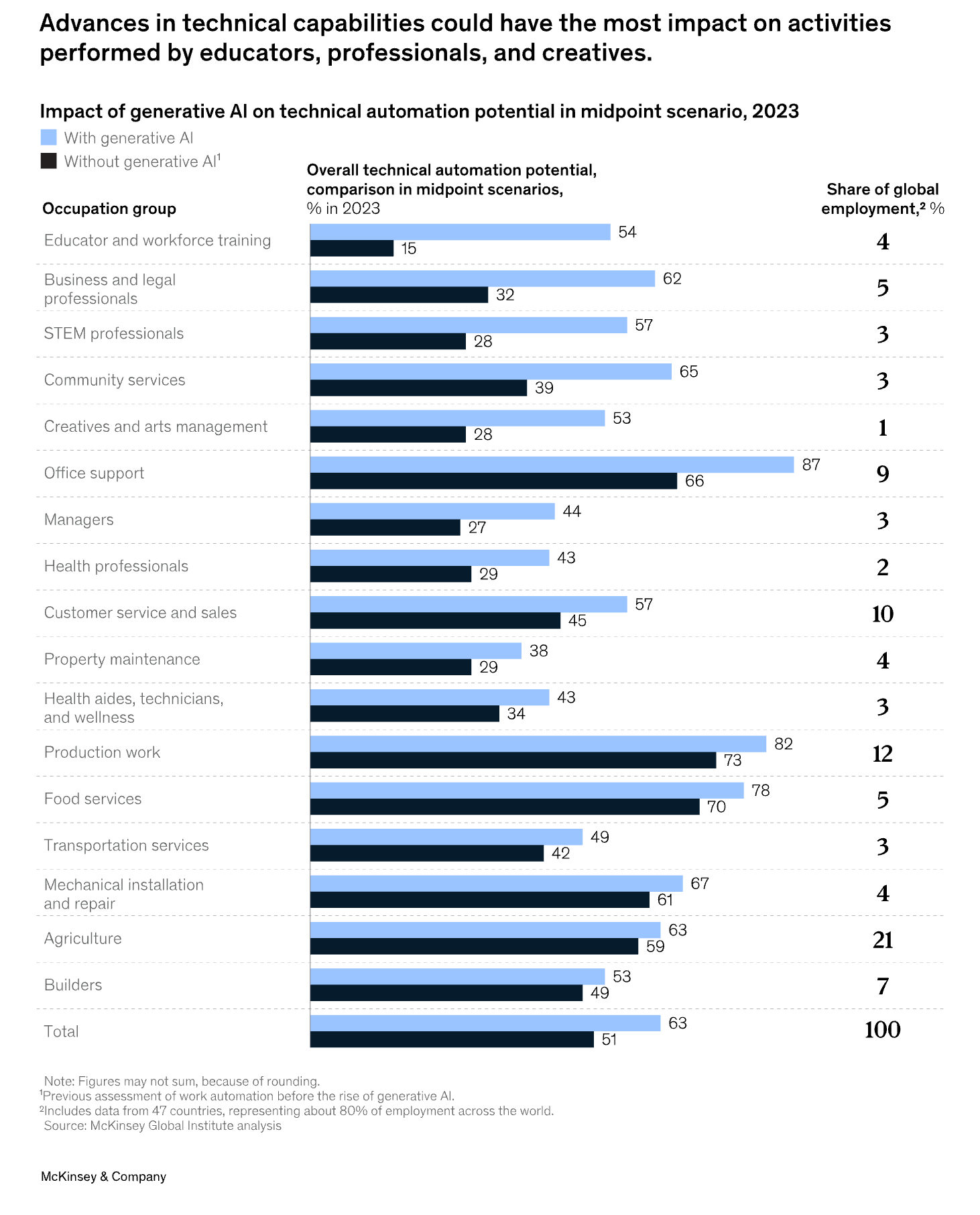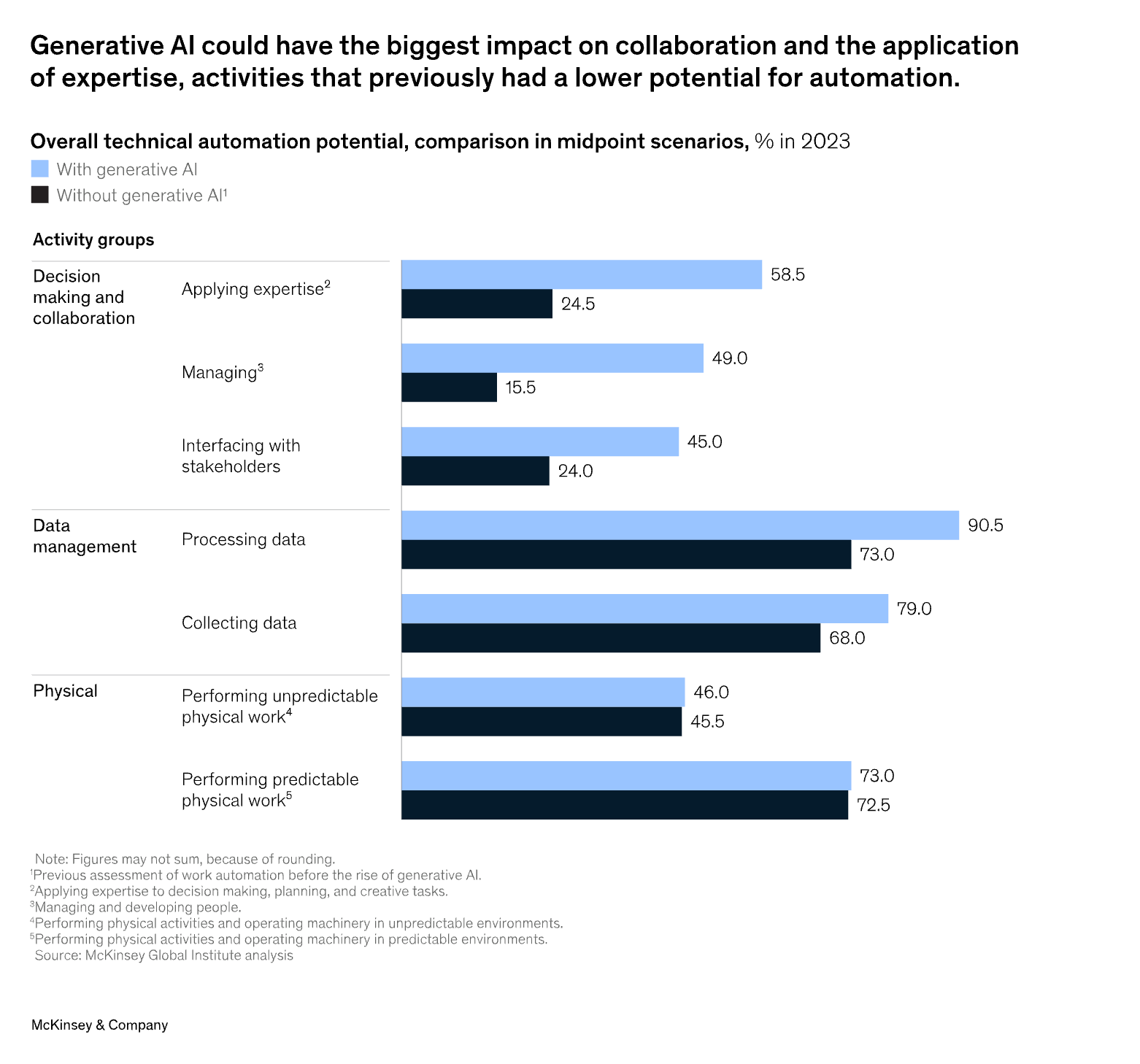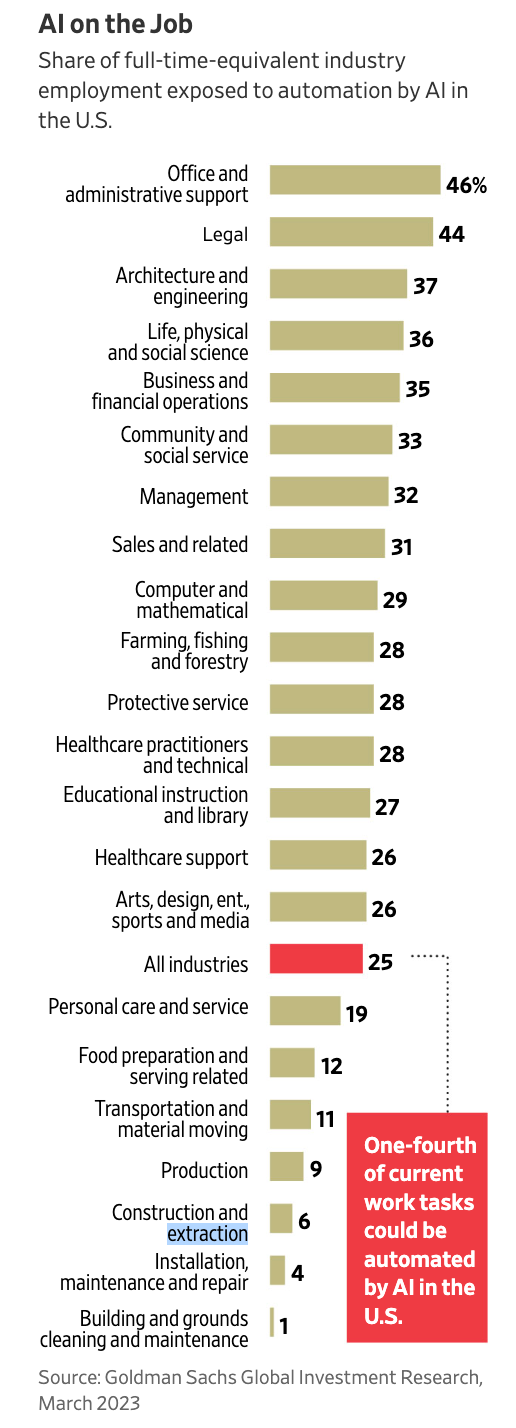Main Street Insiders - Return of The Forgotten Man and Woman
Most observers of the AI revolution agree: it's real. And it's going to be huge. That's about all they agree on, though. Some believe it will lead to the biggest economic boom known to man, and others believe it will hollow out the job market and destroy lives. Some think it will make us smarter and happier, while others are warning about, well, Terminator. There are intelligent people on both sides. As noted by Daily Mail:
When that many brilliant minds can't agree on the outcome, then let's face it — nobody knows how the macro situation will shake out. I'm reasonably confident that most of the billions flowing to any startup with "AI" in its name or pitch deck will be lost. Some of them are borderline scams. The next Kozmo.com, WeWork, or Fyre Festival is already here. We just won't know which ones are the cautionary tales until the doors close and the documentaries come out. Surely, some of the survivors might become the next Amazon or Google, but it's hard to pick winners this early, as the dotcom bubble showed us.  In the meantime, we can observe some trends and make some guesses about the future. Barring the Terminator scenario, the AI revolution could lead to the greatest rebalancing of societal power in history. It's The Real Great Reset. There's a plausible scenario where The Forgotten Man and Woman re-emerge more powerful and prosperous than ever. Where the elites lose their grip on centralized power. Where freedom, economic mobility, and an ownership society become the norm (again). It's not the great reset Klaus and his merry band of elites had planned — and they aren't going to let the "freedom" version happen without a fight. But let's explore this scenario further. Working In RealityThree quick stories:
There's a saying going around: In the future, your job will either be done by AI or by someone using AI. This saying is partially true, but it's a sliding scale. Who in the above three scenarios should most fear for their livelihood? The vet has no fear. A robot isn't doing that surgery in our lifetime and probably not our grandkids' lifetimes. And people aren't just going to let their otherwise healthy dogs die. The vet is safe. The house renovators have no fear. Lifting that house was grinding work that required a mix of skilled machine operators and manual laborers. Sometimes those were performed by the same guy. Terminator would have a nervous breakdown before he could do that job. The renovators are safe. Our analyst makes multiple six figures and has a lovely studio apartment in NYC. He's on track to make managing director by his mid-30s, making over a million per year. The analyst is screwed. Three other people on his office floor will also be able to use AI to increase output from one to four reports per month. Unless the firm suddenly realizes it needs four times as many reports, then three of those analysts are gone. Joined by laid-off analysts from the firm on the next floor up, analysts in the office across the street, and a bunch of ticked-off former analysts from Boston. An Economic Revolution Unlike Any OtherThe AI revolution won't be like previous economic revolutions. During the Industrial Revolution, many migrated from farms and shops into cities where jobs were plentiful at factories that mass-produced goods. This ultimately led to a manufacturing boom, especially following World War II when America helped rebuild the world that Germany and Japan had bombed to the ground. Prosperity went up, and poverty went down. For the last 40 years, a combination of globalization and technological advancement created a new economic revolution where millions of manufacturing jobs were lost. Knowledge work became the "it" thing, and it was a troubling era for many. They told us those job losses were due to automation. Yes, some jobs were lost to automation; that was inevitable. But ironically, millions of manufacturing jobs showed up in other countries during that same period. Jobs making the same stuff that was made here decades earlier. That part was avoidable. Take it directly from the Bureau of Labor Statistics:
Why would a loss like that happen during that period? China wasn't even in the global top 10 exporters until 1997. But look where they are now in comparison to America. . . The end result: Jobs got shipped overseas to make products that were, in turn, shipped back to us to buy. They told us those high-paying manufacturing jobs would be replaced with high-value service jobs. The knowledge economy would be more prosperous than the manufacturing-based one. The only catch is that you now need to spend $100,000 or more on a college degree to get those jobs — which usually requires opting out of the full-time workforce while you do that. And that price has only skyrocketed over time. Big expense and lost income. That's a terrible trade-off for people previously making a good living assembling cars, TVs, and furniture for their fellow citizens to enjoy. And they had health benefits and skills that gave them relative job security. But hey, globalization. It's the future. So we let those jobs go while Silicon Valley's Masters of the Universe told us to "learn to code." As discussed in The Producing Class, what happened to blue-collar workers during globalization would eventually happen to white-collar workers whenever the elites found a way. And now, with generative AI, they have. (By generative AI, we mean large language learning models like ChatGPT and all its eventual offspring.) The next economic transition won't be anything like the previous ones. The next economic transition allows us to return power back to regular, hard-working citizens. The Revenge of AutomationAutomation can provide productivity gains that lead to economic growth, especially in environments of low unemployment. Automation can also threaten existing jobs, displacing real humans. I know, I know – "There will be new jobs those people can be trained for." Tell that to the laid-off machinist who must return to school for two years to learn new skills, live off the scraps of their financial aid, and hope to God there's a job waiting for them at the end of the line. I've been in higher education for almost 20 years and have seen these people come through our programs. As their instructor, I sign their Trade Act progress reports. I know what "creative destruction" does to their lives. It's not as simple as economists try to make it sound from their tenured jobs and executive suites. We've had to tolerate quotes like these for years . . . “The factory of the future will have only two employees, a man and a dog. The man will be there to feed the dog. The dog will be there to keep the man from touching the equipment.” – Warren G. Bennis What a dark, cold vision of the future, expressed almost gleefully by the managerial class. But decades of callous indifference to economic dislocation are coming home to roost, brought to life by the same elites these people worship. Now they get to see what economic survival of the fittest looks like. Consulting firm McKinsey wrote a study of generative AI's impact on the workforce. They note:
In other words, automation is now taking its revenge on the managerial class. A chart from the McKinsey report shows the automation potential due to generative AI. The dark blue line is automation potential before generative AI. The light blue line is automation potential with generative AI. First, look at the bottom third of the chart. It's all the dirty jobs and blue-collar work done by the Forgotten Man and Woman. These people have faced threats from automation for decades, mostly from robotics. The introduction of generative AI barely bumps the automation potential for their jobs. This technology revolution will be a light breeze for them.
Now look at the top third of the chart. Jobs that had low automation potential (short dark blue line) without generative AI see a massive increase in automation potential now that generative AI is here. Those bars are a graphical representation of the managerial class's comeuppance. We've been saying all along — the elites will always gravitate toward the lowest cost of labor and highest profits, no matter the human cost. For those managerial, white-collar types who turned a deaf ear to the Forgotten Man and Woman these last few decades, it's your turn. As Bruce Willis says in Die Hard . . . This chart further illustrates where generative AI will have the most significant impact. It divides work into activity groups. Again, almost zero impact on physical workers. But automation potential for "managing" triples while automation potential for "interfacing with stakeholders" nearly doubles. A Goldman Sachs research report confirms these projections: Once again, notice that physical work is least affected by AI automation going forward. Building, production, food prep, personal care — they'll be fine. White-collar jobs, not so much. All of this brings mixed emotions. Yes, it's nice when the callous members of the managerial class receive their comeuppance after years of arrogant indifference to the unwashed America First types. But lots of innocent people will also get caught in the crossfire. People who were persuaded to believe that a college degree was the only path to a promising career, regardless of the cost. At the very least, one can hope that this realignment of the workforce is a wake-up call for everyone in the Producing Class: blue-collar, white-collar. We are ultimately on the same team. It’s time to join together. The real ball game is Main Street versus the Elites. There are many implications from all this that we'll explore in future articles, including:
These questions aren't easy to answer but are worth exploring. The moves we make now — as individuals and communities — may determine our fortunes for the next generations. You're fine if you're the veterinarian or the guys who lift houses in the air. For the rest of us, it's go time. Maybe AI is all hype and nothing's really going to change. Or perhaps AI will create more jobs than it destroys and we'll be more prosperous than ever. (Even so, that transition will be rough for the people involved). Either way, there's low risk and high reward for getting your head in the game and being prepared. God bless and God bless America, - Jeff Perlot |
Older messages
The Counterculture We Need: Part 2
Thursday, June 29, 2023
An Almost Forgotten Tradition
Invite Your Friends To Read Main Street Insiders
Friday, June 23, 2023
And Earn Free Subscriptions!
The Counterculture We Need: Part 1
Monday, June 12, 2023
When Will The Pendulum Swing In Our Favor?
Klaus and Me
Wednesday, May 17, 2023
The Story of a Rebel and his ChatGPT
You Get What You Pay For
Wednesday, April 26, 2023
How The Elites Are Simply a Reflection of US
You Might Also Like
I interviewed THE largest Amazon Seller [Roundup]
Monday, March 3, 2025
Need funding for your Canadian Amazon business? Not sure if you should use a Canadian corporation or US LLC to form your company? We'll cover these questions and more in our Start and Grow Your FBA
The state of data-driven decision-making for CPG brands
Monday, March 3, 2025
How marketers use purchase insights to maximize campaign performance
Facebook updates, TikTok ROI, Instagram format matches, and more
Monday, March 3, 2025
Today's Guide to the Marketing Jungle from Social Media Examiner... presented by social-media-marketing-world-logo New week, fresh insights, Reader! Stay sharp with the latest updates on AI, social
Are you losing revenue to rivals?
Monday, March 3, 2025
This is a challenge that costs businesses millions every year: Their customers are switching to competitors for various reasons... even though most of them could easily be fixed. On Tuesday, March 4,
DeepSeek’s 545% Profit Claim
Monday, March 3, 2025
PLUS: Siri 2027?!
Insurtech VC resets, readies for growth
Monday, March 3, 2025
Europe's share of regional IPOs sinks; the agtech revolution is now; hope flares for natural gas deals Read online | Don't want to receive these emails? Manage your subscription. Log in The
What I Think About The Crypto Strategic Reserve
Monday, March 3, 2025
Listen now (8 mins) | To investors, ͏ ͏ ͏ ͏ ͏ ͏ ͏ ͏ ͏ ͏ ͏ ͏ ͏ ͏ ͏ ͏ ͏ ͏ ͏ ͏ ͏ ͏ ͏ ͏ ͏ ͏ ͏ ͏ ͏ ͏ ͏ ͏ ͏ ͏ ͏ ͏ ͏ ͏ ͏ ͏ ͏ ͏ ͏ ͏ ͏ ͏ ͏ ͏ ͏ ͏ ͏ ͏ ͏ ͏ ͏ ͏ ͏ ͏ ͏ ͏ ͏ ͏ ͏ ͏ ͏ ͏ ͏ ͏ ͏ ͏ ͏ ͏ ͏ ͏ ͏ ͏ ͏ ͏ ͏ ͏ ͏ ͏ ͏
$92K BTC After Trump’s Crypto Call, MARBLEX Invests $20M—WOOF Ups the Game!
Monday, March 3, 2025
PlayToEarn Newsletter #262 - Your weekly web3 gaming news
Outperform AI
Monday, March 3, 2025
Computer jockeys everywhere are having their job security threatened by AI. To delay the machine takeover, create an AI-proof side hustle or business.
The One Question Jeff Bezos Says You Should Be Asking
Monday, March 3, 2025
“When you have something that you know is true, even over the long term, you can afford to put a lot of energy into it.”



